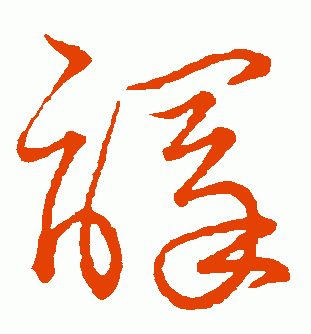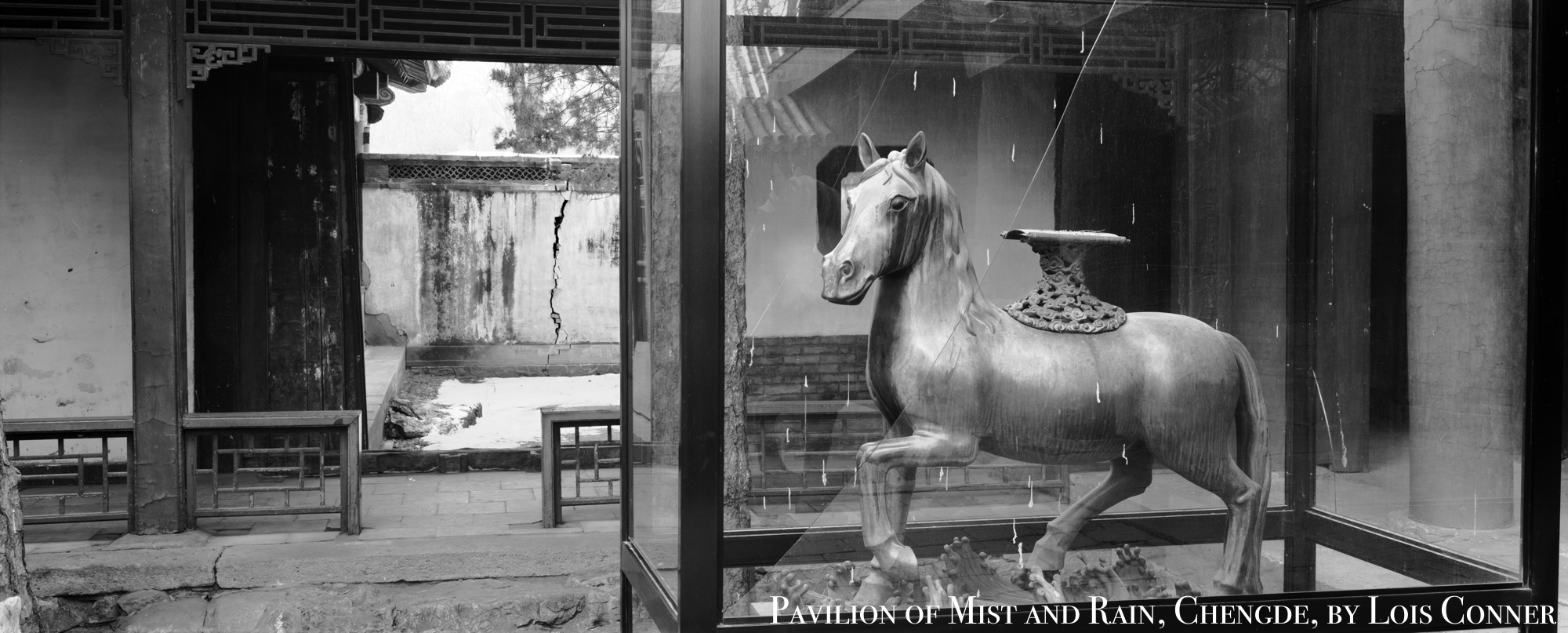The Wairarapa Talks are recorded and transcribed lectures, speeches and lessons by members of the Academy. We will also include recommended lectures by non-Academy writers and scholars.
This section features lectures on New Sinology (see the two lectures by Geremie R. Barmé below), new material such as John Minford’s 2016 ‘Four Translators’ and his 2015 Lectures on Chinese Literature, Translation and Translators at the Australian Centre on China in the World (see below), as well as previously recorded interviews and dialogues, including John Minford’s dialogue with Anthony Yu 余國藩, filmed during the latter’s visit to Canberra in 2009, and interviews that John undertook with leading scholars of China such as David Hawkes and Jacques Pimpineau under the aegis of The Prospect Garden web project 中華大觀網 supported by Ian Chubb, then vice-chancellor of The Australian National University, and The Chinese University of Hong Kong.
Here we will also provide links to lectures by David Faure on Chinese history and links to relevant online lectures, sound recordings and YouTube/ Youku video material both in English and in Chinese.
The Wairarapa Talks may well also include speeches and lectures by specialists in literature, history and translation, including such scholars as the writer Pierre Ryckmans (Simon Leys), the intellectual historian Xu Jilin 許紀霖, as well as Shen Zhihua 沈志華 on the history of the People’s Republic and Yuan Tengfei 袁騰飛 on Chinese and world history.
New Sinology: Two Lectures
Geremie R. Barmé, ‘Australia and China in the World: Whose Literacy?’
Inaugural Lecture, Australian Centre on China in the World, Inaugural Lecture, 15 July 2011. For the text of the lecture, go here. For the lecture on YouTube, see here.
This lecture seeks to address the anxieties over ‘China Literacy’ in an age of Chinese economic ebullience, historical revival and national aspiration. In doing so it recalls some of the concerns of founding figures of Chinese Studies at The Australian National University, while advancing ideas related to the Australian Centre on China in the World, founded in 2010.
Geremie R. Barmé, ‘New Sinology in the Xi Jinping Era’
Fifth Annual Lecture, Australian Centre on China in the World, 26 October 2015. For the lecture on YouTube, see here.
When Xi Jinping became General Secretary of the Chinese Communist Party in November 2012, he declared that the Party was travelling along a ‘Chinese path’ 中國道路 into the future; it would not follow the ‘old path’ 老路 of Maoism or pursue the ‘arrant paths’ 邪路 of Western-style market democracy, rather it was forging a course unique unto itself. Xi was reformulating in party-speak a view expressed by generations of thinkers and historians that, as China continued to assimilate its Marxist-Leninist heritage, aspects of the country’s political and philosophical traditions would re-emerge.
China’s century long search for wealth and power has often overshadowed a more existential quest: the search for cultural, political and civilisational meaning. In the Xi Jinping era (2012-2022) this yearning, at home and abroad, is more bold and urgent than ever.
Official China has reconciled in many ways elements of pre-dynastic and dynastic traditions with the legacies of the Republican era (1912-1949) as well as with Maoism itself. A party stalwart himself, Xi Jinping is also an exemplar of this grand conciliation. In the Xi era, New Sinology 後漢學, which I first advocated in 2005 and which formed the intellectual foundation of the Australian Centre on China in the World in 2010, is more relevant than ever. It is a Sinology (or ‘study of things Chinese’) that is vitally engaged with China’s contemporary realities, its various lived traditions and its cultural underpinnings. Such an approach, and its practical application, offers a crucial key to the understanding of China’s past, present and future.
Cutting a Deal with China
China Heritage was launched on 15 December 2016 at the conference ‘Political Enchantments: aesthetic practices and the Chinese state’. That conference, organised by Gloria Davies 黃樂嫣 and Christian Sorace with the support of the Australian Centre on China in the World, was held at ANU House in Melbourne, Australia. Gloria and Christian invited me to present an opening address, the title of which was ‘Living with Xi Dada’s China — making choices and cutting deals’. At the end of my remarks I announced that John Minford and I had founded The Wairarapa Academy for New Sinology whereupon I formally launched the website China Heritage. For the video recording and revised text of that lecture, see:
- Cutting a Deal with China, Geremie R. Barmé, 15 December 2016; published in China Heritage, 20 July 2017
Chinese Literature in Translation
by John Minford
In 2015, John Minford gave a final series of nineteen lectures over two semesters on Chinese literature and translation at The Australian National University. At the time, Asian Studies at the university was in a state of disarray due to a ‘review’ of the teaching faculty which, in the name of cost-cutting and efficiencies, rained down a shower of absurdities on what was the former Faculty of Asian Studies, a faculty where both John Minford and Geremie Barmé were trained.
For years prior to this latest round of ill-conceived and mismanaged restructuring the Faculty had been a wounded beast, long in search of a serious intellectual rationale and increasingly prey to the mercurial whims of the Managerial Class and their academic collaborators. The academocratic authors of the folly of 2015-2016 would themselves fall from grace, but the ethos of mindless reform and economism continued to hold sway.
Although John’s 2015 course on Chinese literature was ‘on the books’, no teaching facilities or lecture theatre were provided by what John would later call ‘The Sunken Ship’ of the Asian Studies faculty. In his capacity as Director of the Austalian Centre on China in the World (CIW), Geremie Barmé invited John to present the lectures in the CIW Building from March 2015. Those lectures would be an academic ‘swan song’ for them both and, as chance would have it, they would help forge the basis for The Wairarapa Academy for New Sinology. Below are the titles of the last six lectures and recordings of the first three. — The Editor
Series I: ‘Chinese Literature’, February-May 2015
This course of lectures will explore the extraordinarily rich tradition of Chinese literature from its beginnings to the end of the Tang dynasty (tenth century, CE). It will observe the spirit in which the Chinese have written and read, the ways in which they have commented on, creatively participated in and borrowed from, quoted, adapted, stolen, and copied their own literary heritage, and how they continue to do so. Above all it will discover how central literature is to the whole culture and society of China, perhaps more so than is the case with any other of the world’s cultures. Chinese literature remains as vital in the Chinese world today, for its creators, thinkers, writers, politicians and readers, as at any time in that country’s long history.
Chinese literary creativity is a different way of doing things, of viewing the written word and the Art of Letters. The legacy of literature binds together the Chinese present and its past. It also challenges many of our own, Western, preconceptions, and offers an inspiration to today’s writers and students of literature throughout the world, opening up exciting new possibilities.
For more information on the lectures, see here.
Series II: ‘Six Lectures from a Sunken Ship’, September-October 2015
Lecture One:
The Song Dynasty Lyric 宋詞, Part I
An introduction to some of the finest practitioners in this new and almost untranslatable poetic genre, including Qin Guan 秦觀, Liu Yong 柳永 and the greatest Chinese woman-poet of any period Li Qingzhao 李清照.
For a recording of the lecture, download here.
Lecture Two:
The Song Dynasty Lyric 宋詞, Part II
For a recording of the lecture, download here.
Lecture Three:
The Classical Tale
Pu Songling’s Strange Tales from a Chinese Studio 蒲松齡著《聊齋志異》, the final culmination of the tradition established by the earlier ‘stories of the strange’ 志怪 and the Tang tales 傳奇.
For a recording of the lecture, download here.
Lecture Four:
The Story of the Stone 石頭記/ 紅樓夢
China’s greatest novel. John will talk about the wonderful post-modern study of the novel, Re-reading The Stone, as a tribute to its author, the late Anthony Yu. He will also show an extract from the ‘In Conversations’ video they made together back in 2008.
Lecture Five:
Six Chapters of a Floating Life 浮生六記
This and other personal memoirs of the Ming-Qing period, such as Zhang Chao’s 張潮 Quiet Dream Shadows 幽夢影 will be discussed. Little known, but of superb quality, these poignant works continue the grand tradition of belles lettres 筆記 literature.
Lecture Six:
Qing Dynasty Poetry of the Eighteenth Century
Yuan Mei 袁枚, as translated by Arthur Waley, and the lyric verse of the Manchu poet Nalan Šingde 納蘭性德.
A Lineage of Light — Four Translators
by John Minford

In February and March 2016, John Minford, co-founder of The Wairarapa Academy for New Sinology and a leading translator of literary Chinese, presented ‘On Culture & Translation’, a series of five public lectures at the Hang Seng Management College 恒生管理學院 in Hong Kong where he is Sin Wai Kin Honorary Professor of Translation and Culture 冼為堅榮譽教授 (中國文化與翻譯) in the School of Translation.
In his lectures John traces a lineage of leading British interpreters of Chinese literature and thought by focussing on four translators: James Legge, Herbert Giles, Arthur Waley and David Hawkes. The Introductory Lecture addressed the broad topic of Culture and Translation and the nurturing of the literary or cultivated mind, what in Chinese is known as xiūyǎng 修養, or, in French, formation, Bildung in German. This is a subject that we will continue to consider in China Heritage.
John extols translators and their role in world civilisation as Warriors of Light. His overview of these four great translators whose work spans one and a-half centuries offers readers an insight into a little-appreciated Lineage of Light, one that remains vital for the appreciation and understanding of the Chinese world.
— Geremie R. Barmé, Editor, China Heritage
- Introductory Lecture: Culture & Translation, Video
- Introductory Lecture: Culture & Translation, Handout
- Lecture Two: James Legge (1815-1897) and the Chinese Classics, Video
- Lecture Two: James Legge, Handout
- Lecture Three: Herbert Giles (1845-1935) and Pu Songling’s Strange Tales from a Chinese Studio, Video
- Lecture Three: Herbert Allen Giles, Handout
- Lecture Four: Arthur Waley (1889-1966) and the Translation of Chinese Poetry
- Arthur Lecture Four: Arthur Waley, Handout
- Lecture Five: David Hawkes (1923-2009) and the Translation of The Story of the Stone
- Lecture Five: David Hawkes, Handout
On Change
- John Minford, Encore — Translating the I Ching, China Heritage, 18 May 2018

